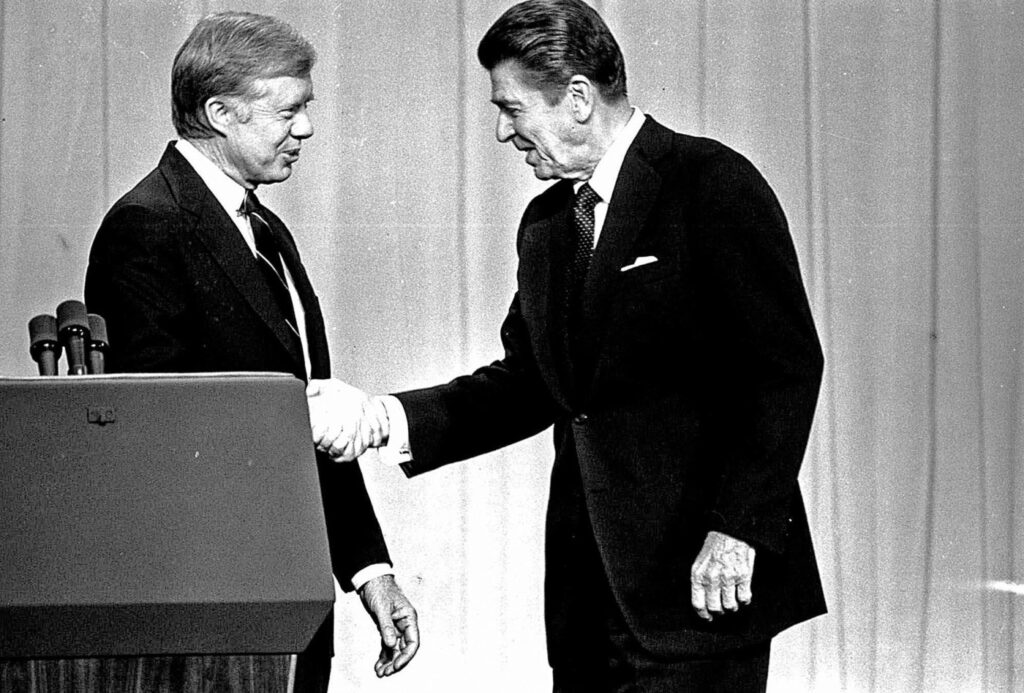Chris Roemer: Is political idealogy more important than the demise of a nation? | COMMENTARY
- January 13, 2024

I suppose I was pretty conservative when I headed off to college, although I didn’t know it at the time.
Actually, I wasn’t particularly political at all, and like most kids I was fascinated by new ideas.
It wasn’t Gettysburg College, per se, that pointed me left as a young man. It would be a few more years before schools actually ordered things to achieve that outcome.
It was more the relationships I formed with individuals that headed me in that direction.
It was “cool” to be liberal. Sort of a rebellion. A way to make me feel superior to the average schmo who obviously wasn’t as enlightened as I was.
Not much has changed since those days in that regard.
So, here I was, this conservative kid who headed off to college in 1978. Two years later I was voting to re-elect Jimmy Carter, and then Walter Mondale.
When I graduated in 1982, times were tough. The prime rate reached 20% in the early ’80s. The rate on a 30-year mortgage topped 16%.
Plug that into your mortgage calculator and see what kind of payment you get.
Inflation was out of control, jobs in short supply, the Ayatollah Khomeini had seized control of Iran, Russia was in Afghanistan and challenging U.S. power around the globe and a nuclear war was one pushed button away.
Dependent on pariah states like Iran for our energy needs, Americans felt vulnerable and insecure.
It many ways, we’ve come full circle.
Iran hasn’t changed all that much since, other than it now knows how to make nuclear weapons. China has joined Russia in challenging U.S. influence in the world, and we’re still reliant on pariah states for our energy needs, although today that reliance is more a matter of choice than a scarcity of resources.
The challenges of the Carter Administration caused many Americans to look for new leadership, and many grew to admire Ronald Regan, drawn to the optimism of his “Morning in America” message.
As the ’80s progressed, I was gaining experience as a young professional, acquiring a more complete understanding of the world generally, and developing an appreciation for the difference between unrealistic idealism and tempered pragmatism. My liberal days were numbered.
Still, I had friends from all walks of life with a wide range of political views. Politics had yet to become a death sport. People who thought differently were just people who thought differently, not enemies to be destroyed.
I never drifted to the extremes of either party, although today it’s not unusual for someone who disagrees with my views to call me a fascist or some other term of endearment. It’s only since the left moved to the edges of reality that I’ve become an extremist.
Now I’m in my 60s. In a mere 20 years, God willing, I’ll be in my 80s and that’s about as far as most people can hope to get.
It’s that reality that tends to put everything, not so much in a new perspective, but rather takes an existing perspective and focuses it much more tightly.
I might live to be 80, but I’ll be “dead” forever.
As one approaches that threshold, the transitory nature of this life becomes more apparent and what seemed critical when I was young has lost much of its urgency.
Young people have trouble truly appreciating how transitory life is. When you’re young, the world is staring you in the face. You’ll live forever, and death is more an abstraction than a reality.
But for all of us, there comes a day when there is no tomorrow. People don’t live forever.
And neither do nations.
The difference is, most countries die by their own hand, not because of outside threats. They die because of the shortsighted selfishness of their citizens.
No longer focused on the long-term or the big picture, the vision of most American elected officials today doesn’t extend much beyond the next election. They are forever pining for the day when “their party” runs everything and compromise won’t be necessary. In pursuit of that dream, everything is viewed as expendable.
Too many politicians believe there will always be plenty of time tomorrow to fix whatever they need to break today to win the next election.
The courts, the presidency, Congress, the police, the legal system, the border, even democracy itself.
But there will come a day when we realize these thing weren’t expendable at all.
Left, right or somewhere in the middle, when your last day comes, will it be the fidelity you showed to a political ideology that’s on your mind?
And when America’s last day arrives because its citizens squandered on the altar of political expediency the legacy the Founding Fathers left them, will they celebrate all the elections they won in the years leading up to our national demise?
As the Constitutional Convention was wrapping up in September 1787, Philadelphia socialite, Elizabeth Willing Powel, asked Ben Franklin, “Well, doctor, what have we got, a republic or a monarchy?”
Franklin responded, “A republic … if you can keep it.”
I’m beginning to wonder if we can.
Chris Roemer is a retired banker and educator who resides in Finksburg. He can be contacted at chrisroemer1960@gmail.com
Most Viewed
More
- AandE
- Allegheny
- Books
- Celebrities
- Celebrity News
- Downtown Pittsburgh
- Editors Picks
- Golf
- Health Now
- Lifestyles
- Local
- MLB
- Monroeville
- More A and E
- More Lifestyles
- Most Recent Obituaries
- Movies TV
- Murrysville
- Music
- News
- News & Advice
- NFL
- NHL
- Northside
- Norwin
- Penn Hills
- Pirates
- Pitt
- Pittsburgh
- Plum
- Politics Election
- Sports
- Steelers
- Theater Arts
- Top Stories
- Travel
- Tribune Review Obituaries
- US-World
- Valley News Dispatch
- West End
- Westmoreland
- World